Indonesian Story: Deforestation Rates Are Decreasing, But Companies Still Need to Increase Efforts to Stop Forest Loss and Environmental Damage
450
Globally, more than 1,000 companies disclosed their progress so far in reducing deforestation in a recent report from CDP. The number of companies participating in this report will increase by 300% in 2022 compared to 2017, and only 35 of them are from Southeast Asia.
More than 60% of companies participating in this report disclose business risks due to deforestation. The average company faces a loss of $330 million as a result of exposure to this risk, while the cost of treating this risk is only about $17.4 million.
About 90% of companies say they are not ready to transition to a deforestation-free future.
Companies in Asia perform better than other regions in establishing no-deforestation policies, no-deforestation targets, traceability and ecosystem restoration.
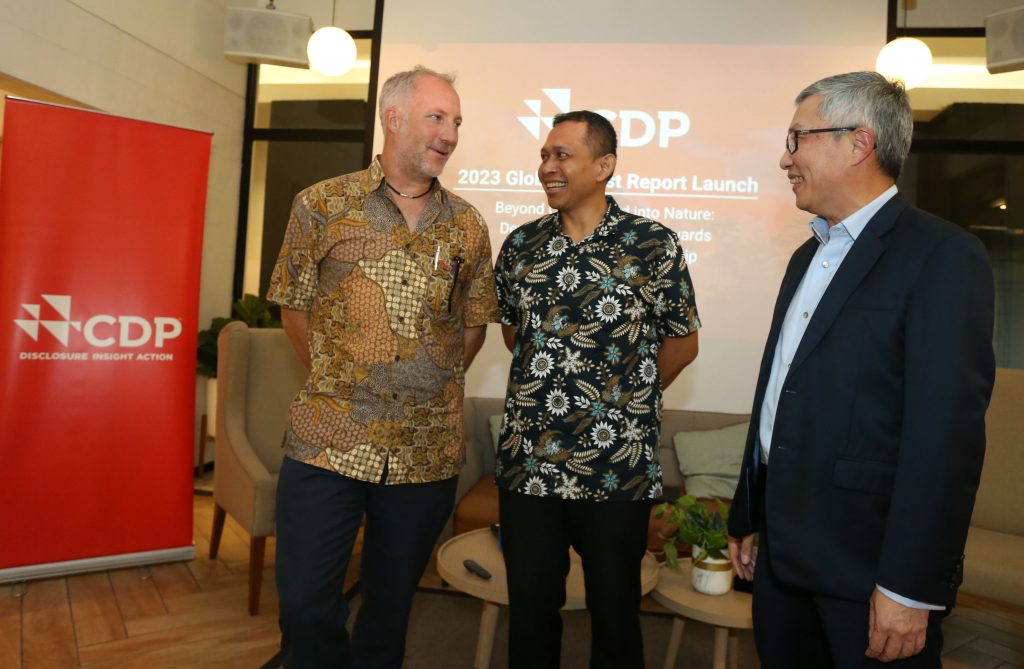
The latest report from CDP, the non-profit organization that operates the global environmental reporting system, shows that 1,043 companies made disclosures through the CDP forest questionnaire in 2022. This result represents a 300% increase in the number of companies participating in the last five years. This is a positive sign that many companies are starting to realize the importance of forests and are starting to open up to disclose the impact of their business operations on forests. Unfortunately, there are only 35 companies making disclosures in Southeast Asia. Even though there is an increase in companies realizing that there are business risks from deforestation, actions to fulfill commitments to reduce deforestation are still considered insufficient, thus encouraging an increase in these risks. In fact, only 1 in 10 companies reported taking sufficient steps to stop deforestation. The report concludes that globally, companies are still not effectively mitigating risk, resulting in a potential loss of nearly $80 billion overall. Of the 10 companies in Southeast Asia alone, the total risk reported was $2.3 billion, while the full cost of addressing all the risks identified and reported by the 16 companies was only US$223 million. CDP is of the opinion that the company’s reported financial impact of this risk is significantly lower than the actual number.
The Southeast Asian region contains about 30% of the world’s total coral reefs, one third of the world’s total mangrove forests2, and nearly 15% of the world’s tropical forests. This makes the implications of indifference to the impact of deforestation very large and the impact will be tremendously felt in the Southeast Asian region. The government and policy makers in Southeast Asia have taken important steps in demonstrating their commitment to carbon neutrality or net zero. A number of steps have been taken, including setting targets to reduce emissions from the forest sector and land use, managing deforestation, and collaborating with non-governmental parties, including the private sector. Some of the initiatives that have been implemented include improving the Nationally Determined Contribution (NDC), developing a green taxonomy, and environmental, social, and governance (ESG) or ESG disclosure requirements.
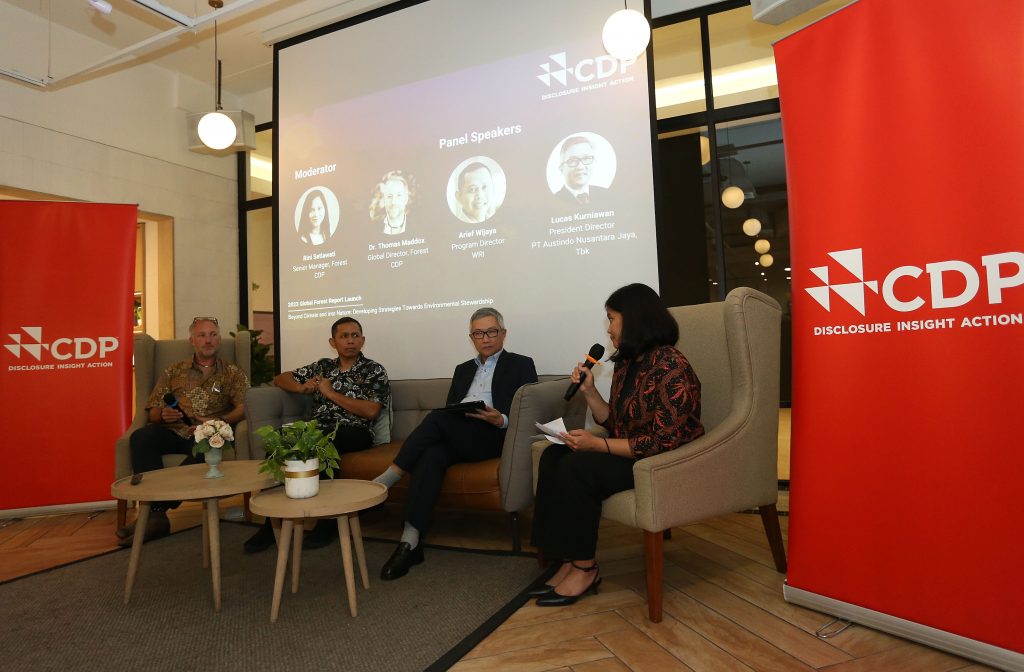
Despite the progress that has been made, there are many challenges that need more attention, especially for companies buying commodities from Indonesia. One of them is the impact of commodity production on biodiversity in Indonesia. By 2022, there will be 28 companies (increased from 21 in 2021) in Southeast Asia conducting disclosure via the forest questionnaire and leading the region. Among them, 10 companies came from Indonesia, 7 companies from Malaysia, 6 from Singapore, 4 from Thailand, 1 from the Philippines, and none from Vietnam. Urgent action is needed to end deforestation. Therefore, this report outlines the main steps that must be taken by the company. These steps include conducting comprehensive risk evaluations, increasing compliance with no-deforestation-and-conversion policies, and disclosing their progress towards achieving deforestation-free, conversion-free supply chains. CDP-facilitated disclosure of companies and the financial services sector allows for transparent reporting of progress in achieving best practice frameworks and standards.
John Leung, CDP’s Southeast Asia and Oceania Director said: “The Southeast Asian region has nature and climate which are important in efforts to tackle climate change. Therefore, countries in this region need to immediately take steps to prevent climate change together. The choice made by the government and companies in Indonesia and other countries in the Asian region The Southeast can help prevent catastrophic global climate change and loss of forests and their habitats.” This latest development is certainly very promising, and the region is headed in the right direction in terms of sustainability. However, to achieve the global commitment to halt deforestation by 2030, decisive action must accelerate. Carbon neutral or net zero commitments will not be achieved without stopping deforestation and land conversion. This report has shown that in Southeast Asia alone, the total risk reported, which is US $ 2.3 billion, is 10 times greater than the cost to handle all identified risks which is only US $ 223 million.
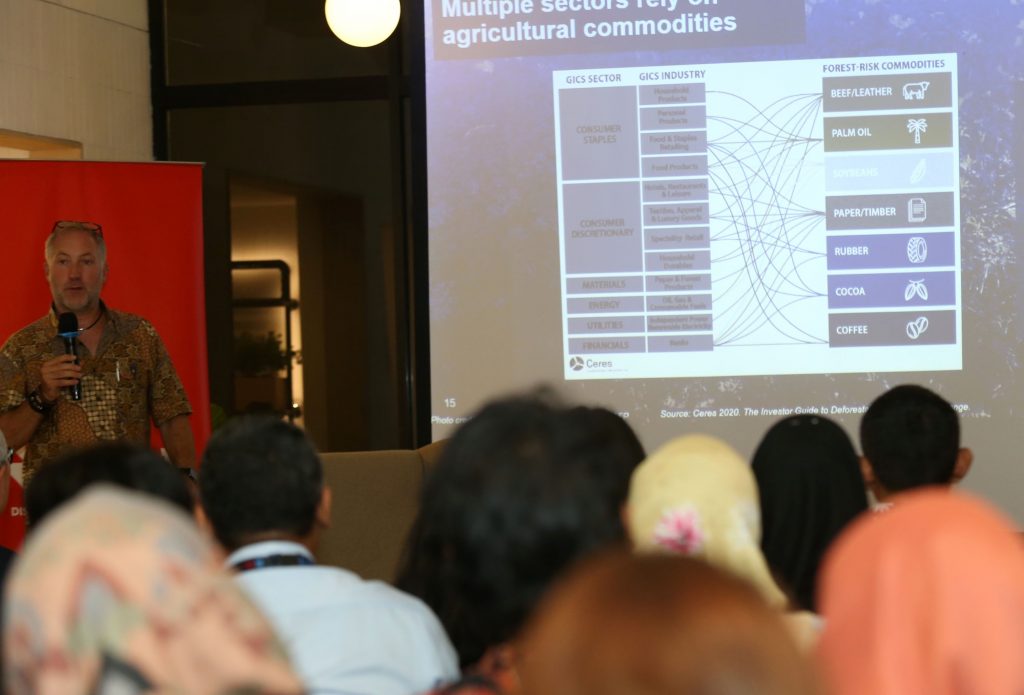
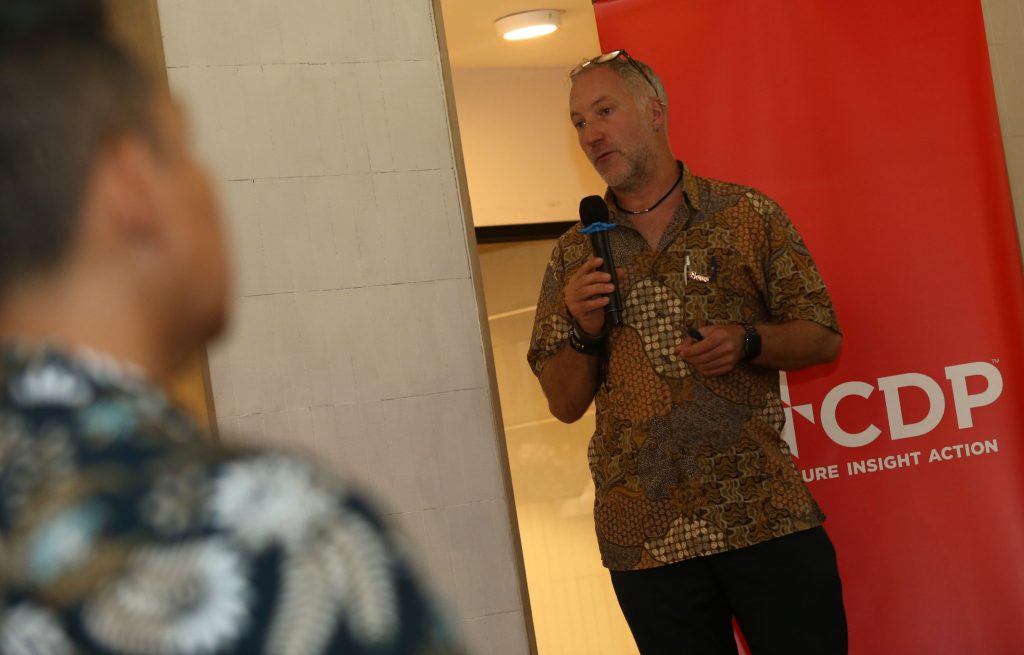
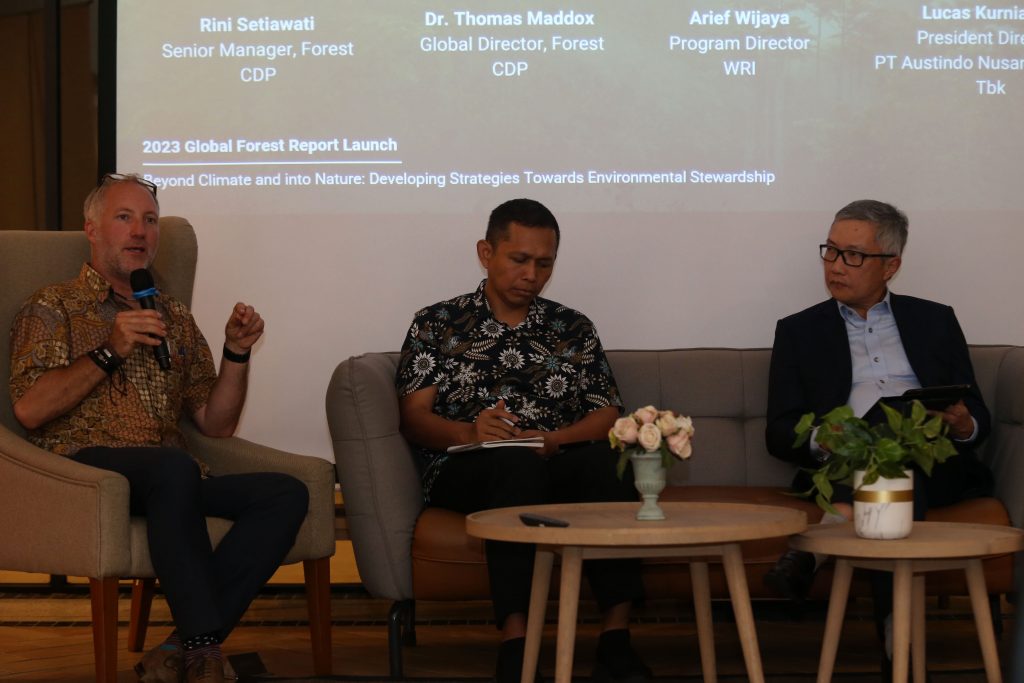
More serious environmental action and disclosure is needed so that we can gain a clearer picture of how to move towards a more sustainable future, where nature and people can coexist. We hope more companies in the region realize that protecting the environment and strengthening their commitment to nature conservation can be a competitive advantage for them.” Thomas Maddox, Global Director, Forests, CDP said: “This year was an extraordinary year for companies disclosing their impact on forests, while also showing a positive signal for transparency. This report shows that companies are increasingly aware of the risks and opportunities related to tackling deforestation. However, we still see a gap between commitment and action. clear of them Deforestation is not a necessity in commodity production Eliminating deforestation from commodity supply chains makes economic and environmental sense but requires financial incentives and the right policies to prioritize such action There is no room for deforestation in achieving net zero emissions and society demands the same. The most important thing in achieving this goal is the ‘when’, not the ‘if’. Companies that act late face the greatest risk of costs.” The 2023 Global Forests Report entitled “The Forest Transition: From Risk to Resilience” was released based on data from over 1,000 companies. As such, this report is the most comprehensive and standardized data set on companies’ exposure to deforestation risk. To read the full report:




